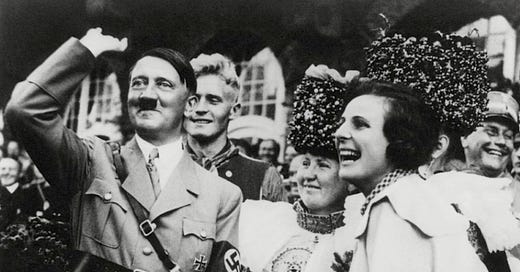In 2003, at the age of 101, Leni Riefenstahl died too soon. She always had her fan club, but today, when so many people seem to think it’s cool to be a Nazi, she’d be a global superstar. Worse luck for her. After becoming the Third Reich’s favourite film director with Triumph of the Will (1935) and Olympia (1938), Riefenstahl was fated to spend the rest of her life denying she had ever been a true believer. Her most dogged claim, repeated to a succession of interviewers, was that she’d never even heard of the death camps until the war was over.
This story never sounded especially credible, and in Andres Veiel’s feature-length documentary, Riefenstahl, it comes across as more threadbare than ever. The film is one of the highlights of this year’s German Film Festival, which also features Matthias Glasner’s masterful Dying; another fascinating documentary, this time on actress, Hildegard Knef; and a bio pic exploring the relationship between artists, Gabriele Munter and Wassily Kandinsky.
As usual, the best of the GFF will get a local release, including Reifenstahl, so I’m going to focus on this film, which has so much to say about the weird glamour of authoritarian politics, and the dangers of viewing life through the lens of high art.




